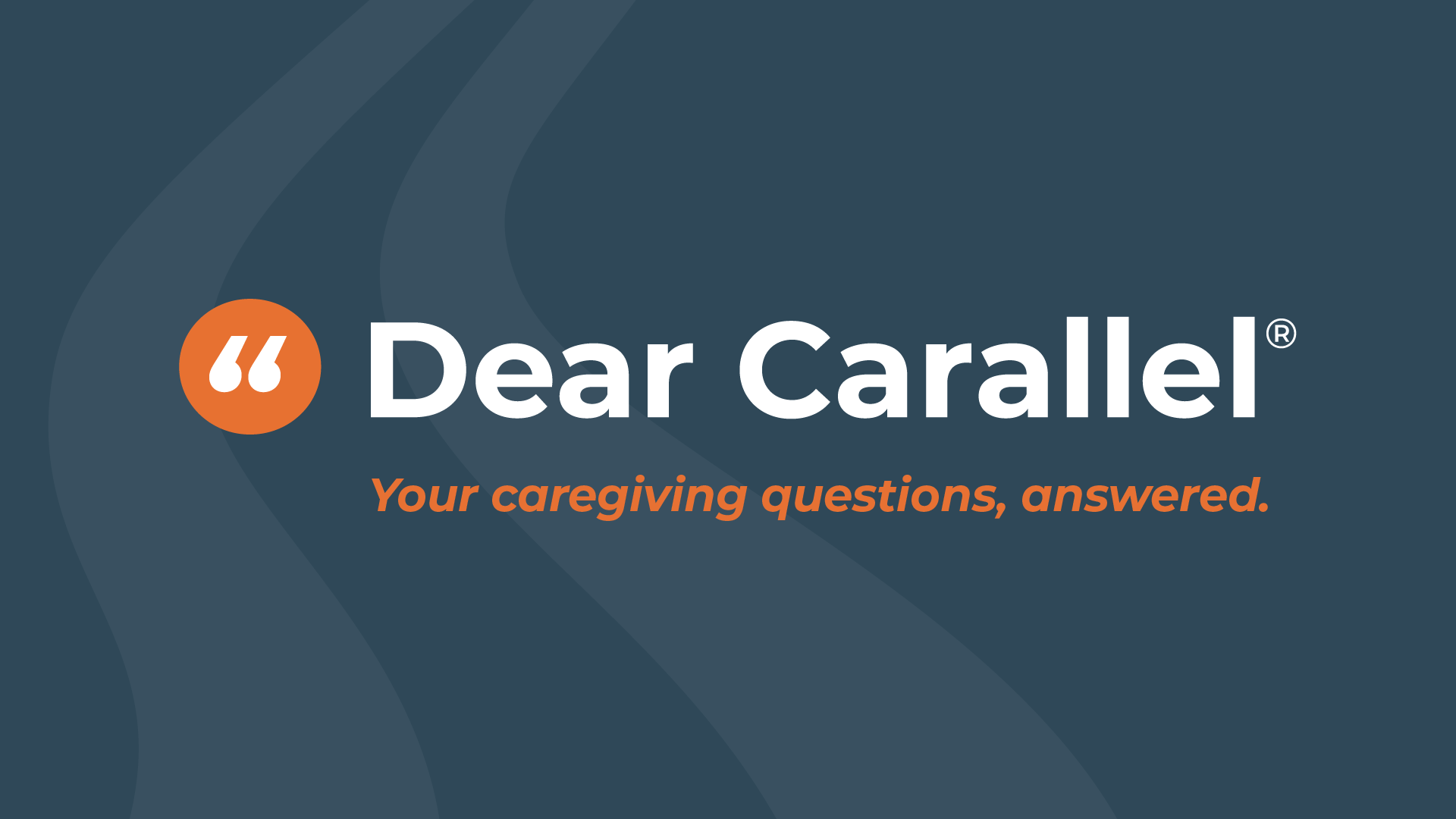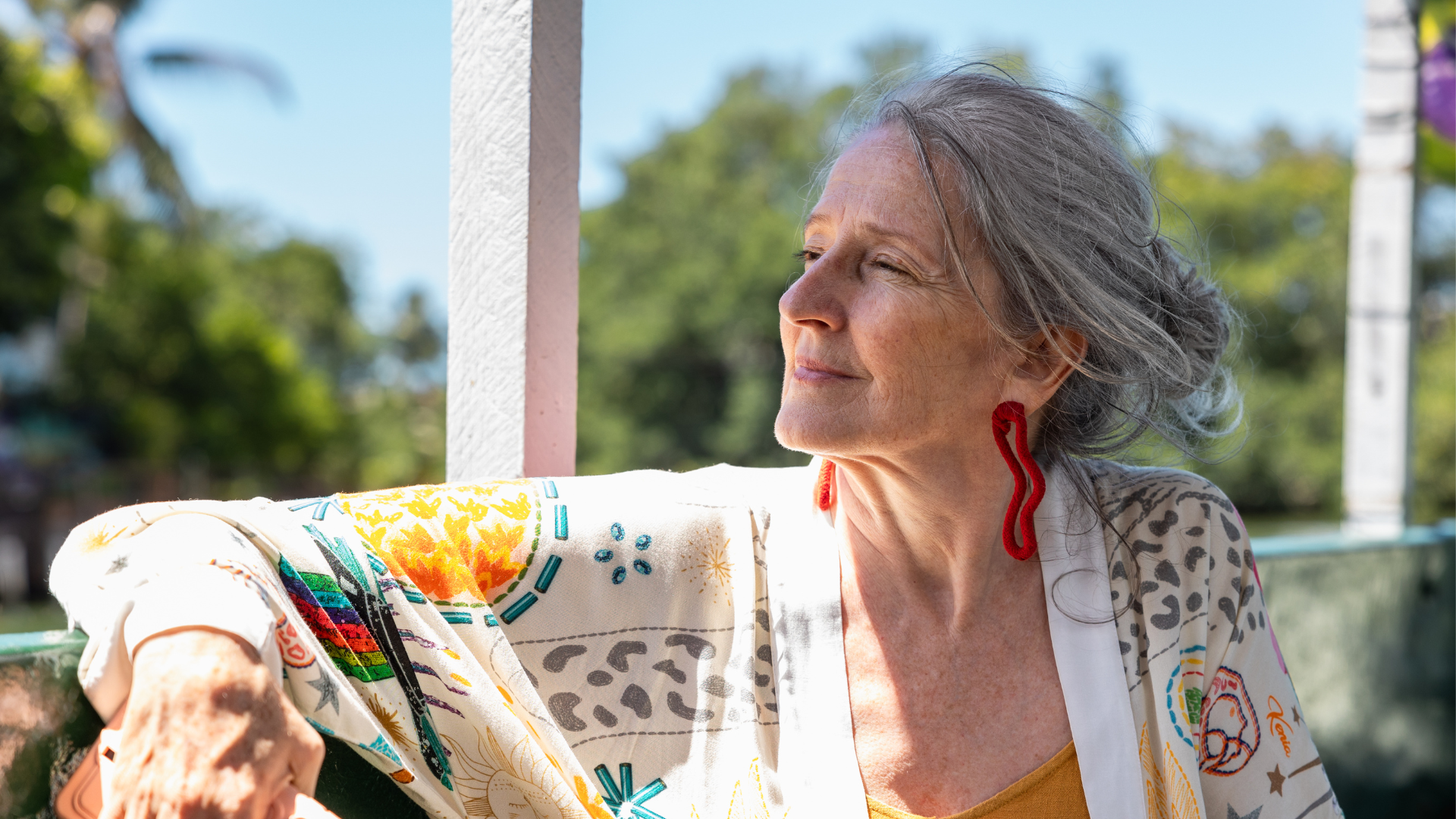Caregiver Question | 09/05/24
Any advice on how to handle the emotional roller coaster?

DEAR CARALLEL: I’ll make this short and sweet. I’ve been helping my mother for the past six years since her dementia started getting worse. She’s doing ok and for the most part I am too I guess.
Except that I’m really not ok because I’m sick and tired of this emotional roller coaster!
I’m always on pins and needles and my emotional state changes faster than the New England weather. It’s exhausting.
Happy for a minute when we have a good visit or phone call. Guilty for missing a visit. Angry when people assume I’ve got nothing to worry about because she’s in assisted living. Elated when we have some good eye contact. It all changes in seconds and I’m exhausted.
Any advice on how to handle all these ups and downs? – Tina in Concord, NH
DEAR TINA: Virtual hugs to you. Thanks for writing in.
Before I jump into the heart of your email, I’d like to address one thing. The fact that your mother lives in an assisted living community does not make you any less of a caregiver.
Okay, on to the crux of your email. These feelings you’re having? They’re real–and the way you describe them as a roller coaster is all too accurate!
Here’s some food for thought that will hopefully help.
Reading the Signs
Emotions, as wild and unpredictable as they may seem, serve a purpose. They’re like road signs guiding you through a new and unfamiliar territory. They’re telling you to slow down, look, and listen – to pay attention to what’s going on.
And they can be a signal that a change is needed. Listening to your feelings brings up questions: “What’s wrong?” “Why do I feel this way?” “What can I do?” “What will help?”
Conflicting Emotions
I’m not surprised to see you describe a set of mixed emotions. It’s normal to feel both love and frustration, gratitude and sadness, compassion and anger.
Understanding that these mixed emotions are part of the caregiving journey can help. It’s okay to feel a jumble of things; it doesn’t diminish your dedication or love for your Mom.
Expect Them
I personally can’t stomach roller coasters in real life but if I could, I’d still want to keep my eyes open while I’m on the ride. That way I’d know what to expect–and to some extent be prepared for the next sharp turn or steep drop.
The same goes for your roller coaster of caregiving emotions. Expecting the change to come could help. And by the way, having some understanding of why you feel the way you do is also important, because how you feel affects what you do.
Go Gently
Cut yourself some slack for feeling this way–and wanting to get off the ride. Even though you’ve been at this for six years, constantly adjusting to the twists and turns of dementia caregiving is not easy.
But see if you can allow yourself to feel your emotions.. Ignoring them or holding them in can lead to burnout – and that would affect both you and your mother.
✨
It’s okay not to have all the answers. The roller coaster you’re on is uniquely yours.
Embrace the highs and lows, lean on your support systems, and try to scratch out at least a few minutes each day for yourself.
You’ve got this, Tina!
Hope this helps,
–Jennifer, Carallel Care Advocate
PS – You might find this recent Caregiver Conversation to be helpful. My colleague Sheila Schultz (a Care Advocate here at Carallel) leads a brief meditation for resilience at the 9:14 mark…
The latest from Carallel

Caregiver Journey Webinar
A Caregiver Conversation by Carallel: Helping Children Adjust When a Loved One Moves In
We dive into the practical realities of moving the person you're caring for into your home - and offer simple tips for helping children adjust....

Blog
The ‘Invisible Second Patient’: Understanding the Role of Dementia Caregivers
There are 16 million Americans caring for a loved one with Alzheimer’s disease or a related dementia today. Despite the group’s sheer size, they...
